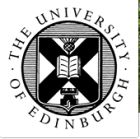I am much indebted to the good christian people of the country for their constant prayers and consolations; and to no one of them, more than to yourself. The purposes of the Almighty are perfect, and must prevail, though we erring mortals may fail to accurately perceive them in advance. We hoped for a happy termination of this terrible war long before this; but God knows best, and has ruled otherwise. We shall yet acknowledge His wisdom and our own error therein. Meanwhile we must work earnestly in the best light He gives us, trusting that so working still conduces to the great ends He ordains. Surely He intends some great good to follow this mighty convulsion, which no mortal could make, and no mortal could stay.
Abraham Lincoln's Letter to Eliza Gurney (4 September 1864); quoted in Roy P. Basler, ed., The Collected Works of Abraham Lincoln, vol. 7 (New Brunswick, N.J.: Rutgers University Press, 1953), p. 535.


